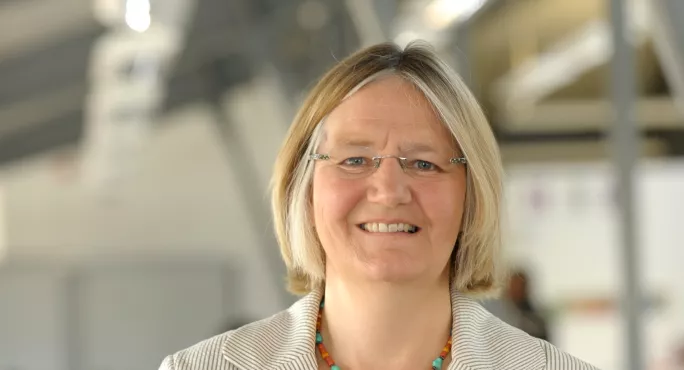Opinion: FE is essential to the growth of the creative industries

The creative economy has been late to recognise that it has relied too long on arts and humanities graduates who are willing to accept unpaid internships and has often failed to recognise the specific technical expertise it needs to fill its skills gaps. Further education institutions have started to engage with apprenticeships and vocational courses for the first time, and yet these new relationships with the creative industries are being put in danger by funding cuts.
The creative industries are one of the most impressive growth sectors in the UK, and one of the fastest growing sectors for self-employment and new business development. Some 2.61 million people are currently employed in the creative economy, contributing almost £77 billion in value-added - the equivalent to 5 per cent of the economy. Put into context: in the 16-year period between 1997 and 2003, employment in the creative industries increased by 83.5 per cent compared with 10.6 per cent of the total UK employment (according to the Department of Culture, Media and Sport’s 2015 Creative Industries Economic Estimates).
Finding a career in the creative sector is not straightforward. Employers expect young people to have high-level qualifications, but just as importantly require them to have industry-relevant experience and technical skills. The traditional reliance on unpaid graduate interns to fill entry-level jobs has led directly to culture of “over-qualified and under-skilled” recruits. Employer satisfaction with these new recruits is poor and our own research forecasts a shortage of 6,000 skilled workers needed for backstage roles by 2017.
The need for FE has never been greater
FE can fill that gap and provide the next generation of skilled workers. Yet the Skills Funding Agency has recently announced a further 3.9 per cent cut to the adult skills budget in England. This is in addition to a 24 per cent cut announced earlier this year. Similar cuts are taking place in the devolved administrations. FE is under threat at a time when the need for its involvement in developing creative skills has never been greater.
To take on this challenge, many colleges are looking at new and collaborative ways to give their students the kind of experience creative industries demand. As part of the National Skills Academy for Creative and Cultural, more than 40 colleges across the UK have chosen to come together and engage employers. They have been able to access industry-endorsed careers advice and tours, professional briefs, speakers, masterclasses and, most importantly, apprenticeship opportunities.
What does this look like in practice? At this year’s WorldSkills in São Paulo, the UK team came away with nine medals (three gold, four silver and two bronze) and 24 medallions of excellence, which recognise skills of a world-class standard. In an event that showcases apprenticeships and technical education, the creative industries are now appearing on the programme with medallions of excellence for Dan Levings (Highbury College Portsmouth) for web design and Ben Pritchard of the Goldsmiths’ Company Apprenticeship Programme for jewellery (the Goldsmiths’ Company has been running apprenticeships since the 1300s!).
September witnessed the start of a new collaboration between the Royal Opera House and South Essex College. Students in BA costume construction will work alongside professional costume makers at the new Bob and Tamar Manoukian Costume Centre at High House Production Park.
Unique access
For live events and festivals, Skills Academy members are given unique access to work experience at major arenas around the country through our Production Day visits. UK music promotor Festival Republic took on some side-stage placement this summer and reported back: “Conor and Jake worked very hard this weekend and were an asset to the team at Latitude. I do hope they enjoyed the experience and if we could have two more students cut from a similar cloth for Leeds that would be lovely.”
Students from Belfast Metropolitan College and North West Regional College formed a record label for a day to work with emerging band, R51. This project required multi-disciplinary teams, music students working with business and design students, and mentored by experts from the music industry. Working within tight timescales and budgets the students produced a two-year artist development strategy for the band, including merchandising, social media, festival plans, press releases and album artwork.
As you can see, the skills and disciplines required for the creative industries are varied and ever-changing. Competition is fierce and employers place a premium on actual industry experience. Matching young people to jobs and aligning course content to new opportunities isn’t an easy task and there is no single solution, but rather an ongoing process of creating links with a great number of businesses.
Further education can meet the challenge of preparing its students for a successful and fulfilling creative career if it can continue to build on its new relationships in the creative industries. It would be tragic if these connections were to be diminished through a lack of investment.
Pauline Tambling chief executive of Creative and Cutural Skills. She tweets at @NSApaulinet
Keep reading for just £1 per month
You've reached your limit of free articles this month. Subscribe for £1 per month for three months and get:
- Unlimited access to all Tes magazine content
- Exclusive subscriber-only stories
- Award-winning email newsletters